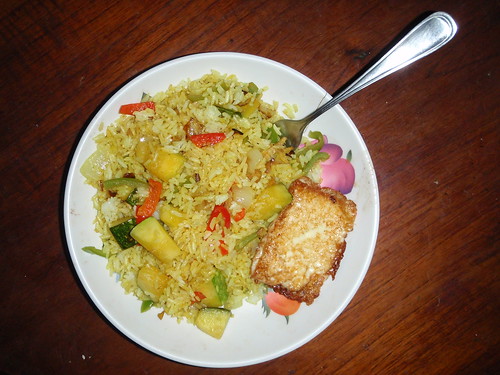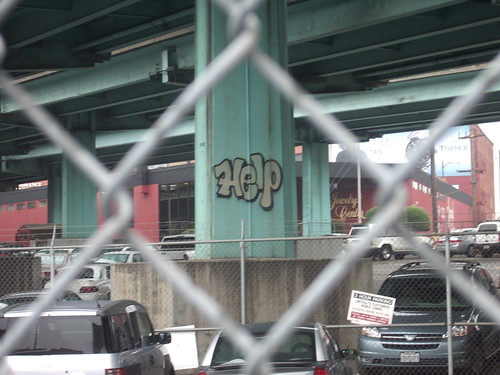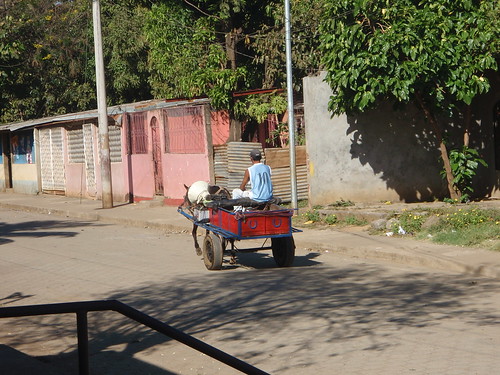One of the things I looked forward to in coming to live alone in Managua was having an independence that I don't get when I'm here on Retreat with the Faithful Fools. I wouldn't have a group's schedule to keep, and most importantly, I would be able to go out alone. When we are here on Retreat, we stay with families who feed us, house us, help us do laundry and expose us to other aspects of how people live here, and show us around the community and the city. It is a wonderful kind of intimacy, being an adult living as someone's child and in their care. There are few people in the world I feel closer to than the three families I have lived with in Managua, though it was only for two weeks at a time. But it has always been a struggle to accept that I couldn't just go out and walk around on my own.
 |
| A typical Nicaraguan dinner - Gallo Pinto, Platanos, y Queso |
With my growing familiarity with the neighborhood, and with the caretaker dynamic (mostly) out of the way, I figured I could go out wherever I pleased, limited only by my lack of knowledge of the countless unnamed streets and my willingness to get lost in them. After all, as I said to some Nicas the first time I came here, it is my job to walk on “dangerous” streets.
 |
| Curry Fried Rice - an improvisation |
Finally, almost three weeks to the day after my arrival, I had no rice, no beans, no cheese – all that was in my refrigerator was a carrot and some onions. I thought about just waiting – I was going to the market to buy more paint the next day, maybe this time I could pick up groceries as well. I certainly could make it through one night and one morning without eating – I have before – but I knew it wouldn't be pleasant. So I grabbed my bag, and my dictionary, and headed down to the corner at Via Flor, the next barrio (actually a colonia, name for a fancier neighborhood) where we go to catch the bus. It is about a mile walk, and the entrance to the barrio is considered one of the hot-spots for being robbed.
As I walked, I felt free, and a part of the neighborhood. I stopped and kicked a soccer ball with a kid I know on the way back. I also thought about how this little bit of hunger I felt was the final motivation to get me past my reservations and fears of leaving the neighborhood alone. What kind of motivation is real hunger, the kind that sits in your stomach for days or weeks on end? Is that what causes the robbery here in the streets, or on any streets? We spend so much hiring police and security guards and border patrol, and building walls and iron grates for our windows and doors, and making weapons that hurt and kill all the more efficiently and frighteningly. We also know the strength of the human spirit – our ability to overcome obstacles – the only stories more common in the news are tales of crime and violence. Is it reasonable at all to think that all the walls and guards and guns that we can imagine can stop a person driven by a deep hunger with no prospect of it subsiding? What other kinds of hunger drive us, and to what ends?
I want to live in a world without bars, where I am not separated from my fellow humans by guards and police and armies, where human touch comes from a hand or a kiss, not carried by the point of the knife or a bullet. Is such a world possible if we feed each others' hunger? Can we afford it? Are we willing to give up the illusion we call “security,” if that's what it takes to have it?



No comments:
Post a Comment